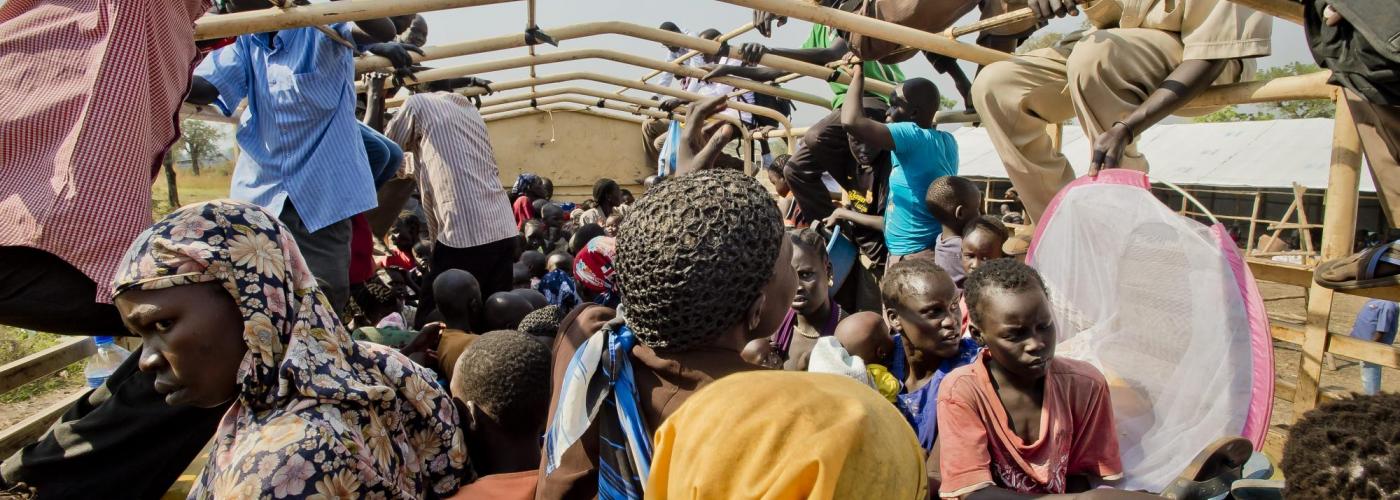Crisis Upon Crisis: Supporting Refugee and Host Community Livelihoods in Lebanon and Uganda
Image

At first sight, Lebanon and Uganda might not have a lot in common. Yet when it comes to hosting displaced persons, some similarities start to emerge: together, the two countries host an estimated 2.7 million forcibly displaced, making them two of the largest refugee host countries worldwide.
For the past 9 years, Lebanon has been at the forefront of one of the most severe refugee emergencies of our time: 1 in 4 persons in Lebanon is a refugee. With an estimated 68% of forcibly displaced Syrians and 28% of Lebanese living below the poverty line, the situation is dire for both, host communities and refugees. Add to that pressure on community infrastructure and public services, as well as competition over jobs, and a national political and financial crisis. It is no surprise that tensions between communities, particularly in already deprived regions such as the North and Bekaa, are beginning to mount. The recent explosion in Beirut adds an additional layer to the existing tensions and challenges in the country.
In Uganda on the other hand, the influx of refugees has put pressure on the country’s open door policy, which guarantees refugees the right to work and establish business, access education and the right to move freely. The worsening domestic security situation in the Democratic Republic of the Congo (DRC), coupled with conflicts sparking in South Sudan, caused Uganda’s refugee population to nearly triple since July 2016 causing increasing tensions over resources and jobs between refugees and the local population.
To make matters worse, the global pandemic and associated lockdown measures are worsening extant challenges. Lebanon and Uganda are therefore experiencing a crisis within a crisis. Covid-19 is exacerbating job shortages and economic problems by placing additional strain on the already thin markets of refugee-hosting areas. As such, governments and partners in Lebanon and Uganda are faced with a triple challenge: i) providing immediate emergency support to refugee and host communities; ii) ensuring post-Covid-19 economic recovery and iii) stimulating growth and labour demand in thin, refugee-hosting markets.
Complex challenges such as this one tend to require systemic solutions. The ILO’s Approach to Inclusive Market Systems (AIMS) adapts market systems development principles to the complexity of forced displacement contexts. Using the approach, the ILO recently conducted two market system analyses, one in the Arua region in Uganda and one in Lebanon to better understand how sector-targeted interventions could secure and increase economic opportunities and benefits for both refugees and host communities. Three generalizable insights emerge from the AIMS analyses:
- Both analyses stress the importance of strengthening those value chains that are core to target groups’ livelihoods during the pandemic, and likely to recover post-Covid-19. In both focus regions, the agricultural sector is the main source of employment and livelihood for hosts and refugees (although in different occupations). The assessments find that promoting staple agricultural value chains is therefore an important avenue to safeguarding livelihoods of refugees and hosts during the pandemic and to supporting recovery in Lebanon and Uganda.
- As the crisis is exacerbating competition over resources and jobs in both countries, the analysis has highlighted the need of following do-no-harm principles to avoid adding additional sources of conflict between refugees and host communities. On this, it is essential to work with both communities (and not only with refugees) to promote social cohesion.
- Especially during crisis, a more systemic approach to refugee’s livelihood needs to complement immediate emergency responses. As such, as part of a wider Partnership for improving Prospects for forcibly displaced persons and host communities (PROSPECTS), ILO interventions in Uganda and Lebanon will refrain from providing farmers with handouts, inputs or information directly, but will rather work with existing market actors to secure and unlock decent job opportunities in these staple value chains.
If you’re interested in knowing more about the assessments in Uganda and Lebanon and the AIMS Approach consult our webpage.

